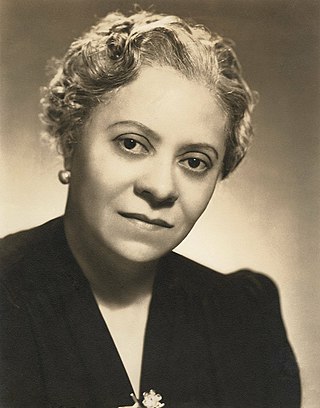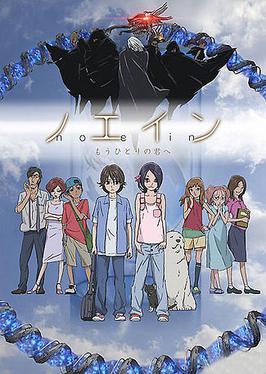
Lara Croft: Tomb Raider – The Cradle of Life is a 2003 action adventure film directed by Jan de Bont and based on the Tomb Raider video game series. Angelina Jolie stars as the titular character Lara Croft with supporting performances from Gerard Butler, Ciarán Hinds, Chris Barrie, Noah Taylor, Til Schweiger, Djimon Hounsou and Simon Yam. An international co-production between the United States, the United Kingdom, Germany and Japan, the film is a sequel to the 2001 film Lara Croft: Tomb Raider.

Lara Sophie Katy Crokaert, known professionally as Lara Fabian, is a Belgian and Canadian singer and songwriter. She has sold over 20 million records worldwide and is one of the best-selling Belgian artists of all time.

Clare Kramer is an American actress. Her credits include Bring It On (2000), The Rules of Attraction (2002), D.E.B.S. (2003), Tru Calling (2004), The Thirst (2006), House (2006), Road to Hell (2008), and Goodnight Burbank (2011). Among her most notable roles is Glory in Buffy the Vampire Slayer (2000-2002).

Lara Dutta Bhupathi is an Indian actress. She won the Miss Universe 2000, and has since predominantly worked in Hindi films and series. Dutta is a recipient of a Filmfare Award and established herself as a prominent leading actress in the 2000s.

Florence Beatrice Price was an American classical composer, pianist, organist and music teacher. Born in Little Rock, Arkansas, Price was educated at the New England Conservatory of Music, and was active in Chicago from 1927 until her death in 1953. Price is noted as the first African-American woman to be recognized as a symphonic composer, and the first to have a composition played by a major orchestra. Price composed over 300 works: four symphonies, four concertos, as well as choral works, art songs, chamber music and music for solo instruments. In 2009, a substantial collection of her works and papers was found in her abandoned summer home.

Lara Christine Von Seelen is an American television journalist. She is best known for being the co-anchor for ABC's Good Morning America. She is also a correspondent for Nightline and ABC News. She was the host of the syndicated entertainment newsmagazine The Insider from 2004 to 2011 and was a regular contributor to CBS's The Early Show. She was the national correspondent for Good Morning America and spent several years as a lifestyle reporter for WABC-TV. She hosted Antiques Roadshow on PBS for the 2004 and 2005 seasons and Antiques Roadshow FYI, a spin-off of Antiques Roadshow, during 2005. She hosts the show Flea Market Flip on both HGTV and the Great American Country channel. In April 2018, she announced she would be only appearing on GMA three days a week to focus on her television producing.

Lara Logan is a South African television and radio journalist and war correspondent. Logan's career began in South Africa with various news organizations in the 1990s. Her profile rose due to reporting around the American invasion of Afghanistan in 2001. She was hired as a correspondent for CBS News in 2002, eventually becoming Chief Foreign Affairs Correspondent.

Noein: To Your Other Self, also known simply as Noein, is a Japanese science fiction anime television series directed by Kazuki Akane and produced by Satelight. The series has 24 episodes which make up a complete storyline. The English version was produced and dubbed by Manga Entertainment.
"The Truth" is the 19th episode of the NBC sitcom Seinfeld. It is the second episode of the show's third season, first airing on September 25, 1991. Directed by David Steinberg, this is the first episode not directed by Tom Cherones. Steinberg would later direct three others. The episode is the first written by Elaine Pope. She later co-wrote a Seinfeld episode with Larry Charles, "The Fix-Up", that won an Emmy Award in 1992 for Outstanding Individual Achievement in Writing in a Comedy Series. She also is credited for the story of one other episode, "The Cheever Letters". Both Steinberg as a guest star and Pope as a writer worked on Fridays, a show that included Larry David and Michael Richards as cast members.
"The Little Kicks" is the 138th episode of the American television sitcom Seinfeld. This was the fourth episode for the eighth season, originally broadcast on the NBC network on October 10, 1996. In this episode, Jerry inadvertently becomes a renowned maker of bootleg films when he takes Kramer to a sneak preview of an unreleased film. The episode is best known for its scenes exhibiting Elaine's bad dancing.

Lara Pulver is an English actress. She has played Erin Watts in the BBC spy drama Spooks and Irene Adler on BBC's TV adaptation Sherlock. She won the 2016 Olivier Award for Best Supporting Actress in a Musical in the West End's revival of the Broadway musical Gypsy.

Labor Pains is a 2009 American romantic comedy film directed by Lara Shapiro and written by Stacy Kramer. It stars Lindsay Lohan, Luke Kirby, Bridgit Mendler, Chris Parnell, Cheryl Hines, and Kevin Covais. The film was released theatrically on June 19, 2009, only in Europe, Latin America, and United Arab Emirates. In United States, the film premiered on ABC Family on July 19, 2009. It drew 2.1 million viewers, a better-than-average prime-time audience for ABC Family; according to the network, it was the week's top cable film among coveted female demographic groups. Labor Pains was released on DVD and Blu-ray on August 4 and 31 in the United States and United Kingdom, respectively.

Jana Rae Kramer is an American actress and country singer. She is known for her role as Alex Dupre on the television series One Tree Hill.

Dawn Kramer is a choreographer, performer, artistic director, and teacher based in Boston, MA. She is notable as an experimental artist combining movement, props, environments, and interactive video. She is a professor emeritus in the Studio for Interrelated Media at the Massachusetts College of Art and Design. She inspired generations of interdisciplinary artists with her classes, particularly the course "On The Spot", which many remember as transformative. Currently, Dawn creates & performs in site-specific videos, and travels extensively.

Lana Therese Condor is an American actress and YouTuber. She made her acting debut starring as Jubilee in the superhero film X-Men: Apocalypse (2016), and gained international recognition for portraying Lara Jean Covey in the romantic comedy To All the Boys film series (2018–2021). She has also portrayed Saya Kuroki in the television series Deadly Class (2019) and Koyomi in the film Alita: Battle Angel (2019). More recently, Condor voiced the titular character in the animated teen comedy film Ruby Gillman, Teenage Kraken (2023).

Lara Lea Trump is an American, former television producer, and former co-chair of the Republican National Committee. She is married to Eric Trump, the third child of the president of the United States Donald Trump. She was the producer and host of Trump Productions' Real News Update and a producer of Inside Edition.

To All the Boys I've Loved Before is a 2018 American teen romantic comedy film directed by Susan Johnson and written by Sofia Alvarez. The film stars Lana Condor, Noah Centineo, Janel Parrish, Anna Cathcart, Madeleine Arthur, Emilija Baranac, Israel Broussard and John Corbett. The movie is based on Jenny Han's 2014 novel of the same name, and was released by Netflix on August 17, 2018. It received generally favorable reviews from critics, who praised the cast.

Eileen Kramer was an Australian dancer, artist, performer, choreographer, and supercentenarian. She began by studying singing and music in Sydney in the 1930s, but after attending a performance of the Bodenwieser Ballet in 1940, she immediately decided on a career change to dance. After joining the troupe that had made such an impression on her, she toured around Australia and overseas for the next decade. She then lived and worked in France and the United States for the next 60 years, before returning to Australia at the age of 99, where she remained active in the arts until her death at the age of 110. Back in Australia, Kramer met choreographer/filmmaker Sue Healey, with whom she collaborated in several film and video works.

Girl is a 2018 drama film directed by Lukas Dhont, in his feature debut. It was written by Dhont and Angelo Tijssens and stars Victor Polster, in his acting debut, as a trans girl who pursues a career as a ballerina.
Alejandra Lara is a Colombian female mixed martial artist who competes in the Flyweight division. She had previously most notably competed in Bellator MMA, where she was a title contender. She is also known by the nickname "Azul".
















